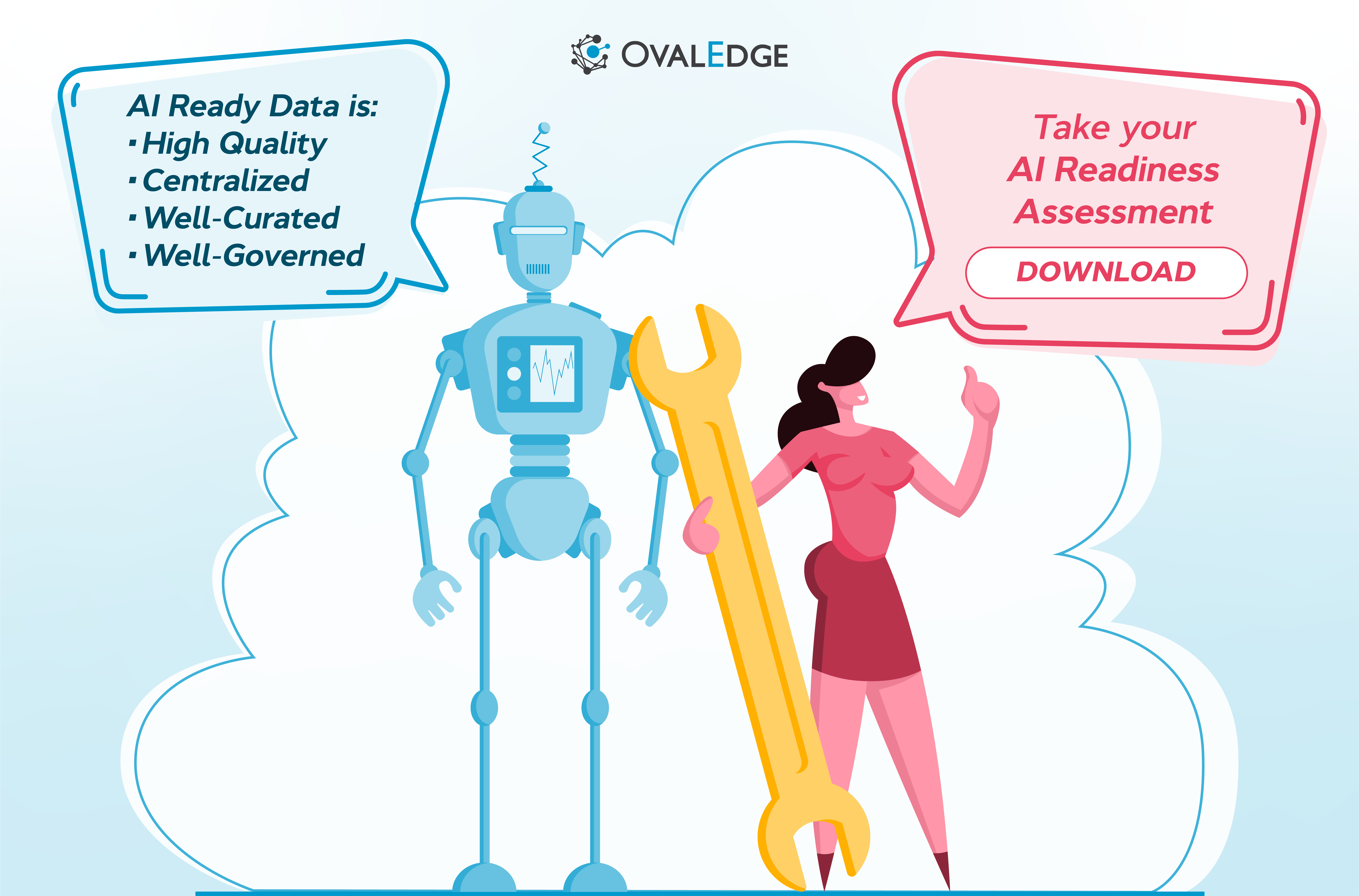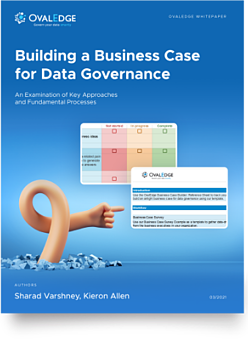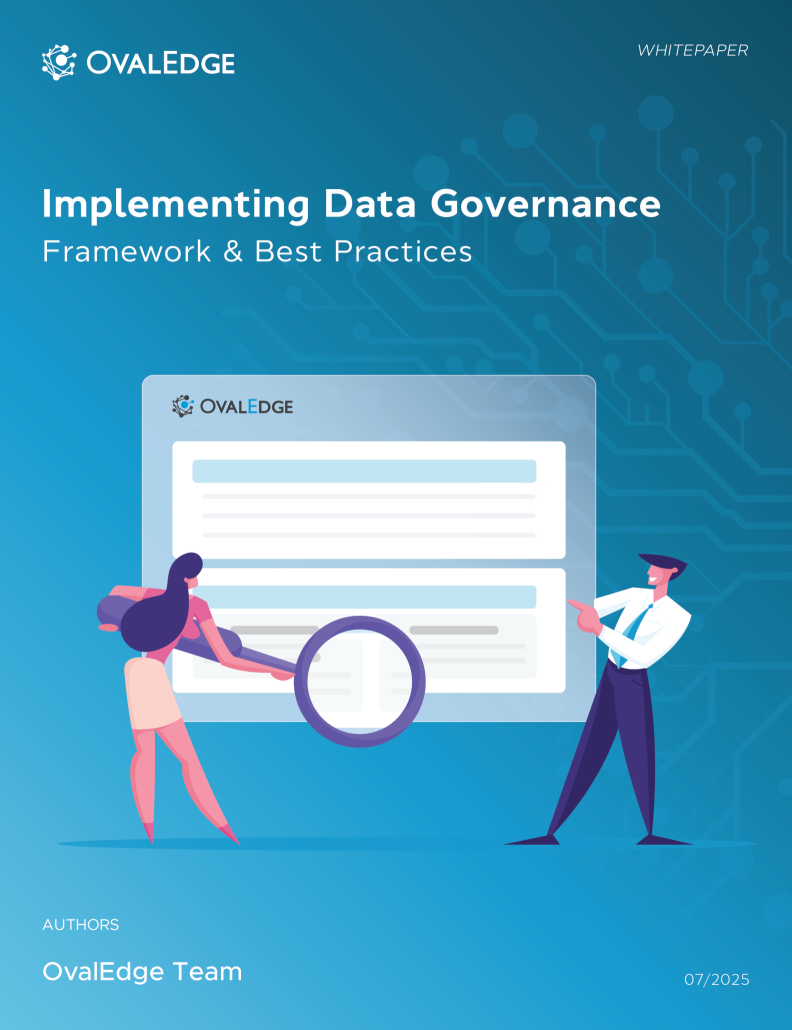Table of Contents
Data AI Readiness: What It Means and Why It Matters
AI readiness hinges not on advanced algorithms but on data. Hence, organizations must prioritize data’s AI-readiness. This implies ensuring data is ethically governed, curated, and of high quality.
The journey towards AI readiness begins not with fancy algorithms or cutting-edge software but with something more fundamental: data.
Data serves as the lifeblood of AI, empowering organizations to derive valuable insights, make informed decisions, and drive innovation.
In this article, we explore why data readiness is the foundational step towards AI readiness and how organizations can harness the power of their data to pave the way for AI success.
What is Data's AI readiness?
Gartner defines AI-ready data as data that is:
- Ethically governed
- Secure
- Free of bias
- Enriched
- Accurate
Here is our definition. Data can be considered AI-ready if it is:
- Of high quality
- Centralized
- Well-curated
- Well-governed
There is a reason why high quality is listed as the first attribute. Data is something you collect over time—it's your competitive advantage. If it is of poor quality, you cannot go back and fix it.
High-quality data for AI is essential because it directly impacts the performance, reliability, and accuracy of AI models. High-quality data enables AI algorithms to produce more precise predictions and make informed decisions.
Poor data quality can lead to faulty AI results, skewed insights, and ultimately, business risks. Ensuring data accuracy, completeness, timeliness, and consistency forms the core of data readiness for AI applications.
Why is data readiness important for AI? Because AI systems rely heavily on the data they are trained on, and insufficient data preparation negatively affects AI outcomes. Data readiness is the foundation that enables an organization’s AI solutions to be effective, trustworthy, and scalable.
Without proper data readiness, even the most advanced AI algorithms may fail to deliver valuable insights or business value.
As organizations scale their AI initiatives, a critical concept often arises: what is AI ready data?
AI ready data refers to a dataset that is clean, complete, contextually enriched, well-governed, and structured in a way that enables reliable model training and inference.
AI ready data typically has:
- Consistent formatting and schema definitions across sources
- Minimal missing values and clearly resolved duplicates
- Business tagging and semantic enrichment so models understand context
- Standardized identifiers and lineage tracking
- Governed access controls that support ethical and compliant usage
Understanding what is AI ready data is essential for transforming raw data into inputs that AI systems can use with high confidence.

Data Governance for AI
-
Data governance is a critical component of data readiness that applies specific controls and policies to ensure data security, quality, and compliance in AI environments.
-
Data governance for AI not only focuses on protecting sensitive data but also addresses AI-specific challenges such as model bias, data lineage, and regulatory compliance. Establishing a centralized, curated data repository where data is meticulously organized, validated, and managed is crucial for successful AI governance.
This centralized curated data platform reduces silos, enhances data discoverability, and enforces uniform data standards across the organization.
-
Organizational data stewardship is a practical first step toward AI-ready data governance. This means assigning roles and responsibilities to ensure data accuracy, security, and ethical use throughout the AI lifecycle from data collection and preprocessing to model training and deployment.
Automated tools leveraging machine learning can help enforce these governance policies and monitor data quality continuously.
AI Data Readiness Framework
Achieving effective AI outcomes begins with ai data readiness—the ability of your data assets to support AI workloads reliably and at scale.
AI data readiness is more than quality; it encompasses:
- Discoverability: Data is easy to find and understand through catalogs and metadata.
- Governance: Data usage complies with policies and ethical standards.
- Traceability: Full lineage and version history are available.
- Consistency: Harmonized definitions and formats across systems.
- Accessibility: Data is provisioned securely for analytics and models without friction.
When organizations focus on ai data readiness, they reduce delivery time for AI projects and improve model trust and predictability.
Why Data's AI Readiness Should be the First Step
When embarking on the AI journey, organizations often focus on acquiring the right software or hiring top talent with AI expertise. While these factors are undoubtedly crucial, they overlook the critical role that data plays in AI readiness. Unlike software, which can be purchased, and people, who can be hired, data is something organizations already possess, albeit in varying quantities and qualities.
Infrastructure, too, can be optimized to support AI initiatives by leveraging hyperscalers. However, without quality data, even the most advanced software and infrastructure will fail to deliver meaningful AI insights.

AI needs Quality Data
While having vast amounts of data is undoubtedly valuable, the true power lies in the quality of that data. Poor-quality data plagued by inaccuracies, inconsistencies, and incompleteness can undermine the effectiveness of AI initiatives, leading to flawed insights and erroneous decisions. Let's delve into some real-world examples of data quality issues that can derail AI efforts:
Examples
Inaccurate data: AI capabilities are reshaping client experiences in the financial sector. One example is investing, where customers are offered services like robo-advisors. This service relies on large volumes of data, including financial statements, market data, and news articles, to inform investment decisions.
However, if the data is of low quality, it can lead to inaccurate assessments of a company’s financial health, resulting in flawed investment decisions.
Missing or Incomplete Data: A healthcare provider aiming to develop predictive models for patient outcomes relies on comprehensive patient data, including medical history, treatment plans, and diagnostic tests.
However, if crucial data fields are missing or incomplete due to data entry errors or system limitations, the predictive accuracy of the AI models will be compromised, potentially leading to misdiagnosis or ineffective treatments.
Related Post: How to Manage Data Quality
AI Hinges on Data Centralization
Data is often stored in disparate source systems and very easily falls into data silos where organizations struggle to know what data is where. Centralizing data via a data catalog or creating data lakes/warehouses allows AI models to leverage all relevant information.
Example
Data Catalog: A data catalog is a tool that brings all your data sources into one place, increasing accessibility and searchability. It empowers organizations to streamline data discovery and utilization while allowing teams to manage, curate, and consume data efficiently.
AI Needs Data Curation
Data curation is the process of creating, organizing, and maintaining data sets so they can be accessed and used by people looking for information. Curated data is also an important step in data readiness for AI, as it ensures high confidence in data quality, compliance with data access rules.
Example
Inconsistent Data Formats: A multinational corporation with operations in multiple countries may encounter challenges when consolidating data from diverse sources with varying formats and standards. Inconsistent data formats make it difficult to aggregate and analyze data effectively, hindering the organization's ability to gain holistic insights and make informed decisions.
AI requires Data Governance
Your organization is responsible for governing and securing its data to prevent misuse. This will only become more critical as your organization increasingly deploys AI.
A secure, well-governed data infrastructure ensures the safety and integrity of the data that feeds AI initiatives, enabling you to trust your models and confidently bring them to market.
Example
Tagging Data Elements: A credit card company needs to make both fraud prevention models and credit risk models for any credit card holder. Fraud prevention models are used to prevent things such as identity theft when people apply for credit cards, and then credit risk models are used to decide things like the credit limit, depending on their transactions and whether they pay their credit card bills.
Now, certain data elements can be used for fraud prevention but not for credit risk. These attributes include location, gender, and age, which can be used to prevent identity theft but cannot be used for credit risk, as it would then be discrimination. The risk management team would need to manually know which data elements can be used for which sort of models.
However, when considering data and AI Readiness today, these models can be made much more efficiently with the ability to tag each data element in its metadata. For example, tagging that the age attribute can be used for a credit risk model but not for fraud prevention.
This kind of metadata tagging and giving context to your data elements is one of the use cases of AI Readiness.
AI Ready Data & Business Value
AI ready data is a strategic enabler, not just a technical artifact. When data meets readiness criteria, organizations unlock:
- Faster model deployment cycles
- Higher accuracy and fewer re-training loops
- Reduced bias and improved fairness
- Better alignment with business goals and decision workflows
Investing in AI ready data accelerates measurable ROI from AI and analytics programs.
Building a Data-Driven Culture
Achieving data's AI readiness requires more than just having the right data; it also entails fostering a data-driven culture within the organization. This involves instilling a mindset where data is viewed as a strategic asset and making data-driven decision-making a cornerstone of organizational practices.
Moreover, it entails promoting data literacy across the workforce and empowering employees to access, analyze, and interpret data effectively. By embedding data-driven principles into the organizational DNA, companies can unlock the full potential of their data and lay a solid foundation for AI readiness.
Related Post: 4 Steps to AI-Ready Data
How Can Organizations Become AI-Ready With Their Data?
Organizations become AI-ready by adopting comprehensive data readiness practices, including:
- Creating a centralized, curated data environment to consolidate disparate data sources for easier access and management.
- Implementing rigorous data quality processes to ensure data accuracy, completeness, consistency, and timeliness.
- Enforcing strong data governance policies tailored for AI, covering security, compliance, ethical considerations, and bias mitigation.
- Integrating data across systems to provide seamless data flows and reliable, up-to-date information for AI models.
- Utilizing advanced data management platforms and AI governance frameworks to automate data stewardship and compliance monitoring.
Benefits of Data Readiness for AI
- Data readiness enhances AI model performance and business outcomes.
- High-quality, governed data leads to more reliable AI predictions, better decision-making, and increased agility to respond to market changes. Properly curated and governed data enables faster AI development cycles and smoother deployments with less risk of costly rework.
AI Data Readiness Roadmap
A practical approach to AI data readiness includes three stages:
- Assess and Baseline: Inventory data landscapes and maturity against readiness markers.
- Prepare and Enhance: Cleanse, enrich, and govern data to meet readiness standards.
- Operationalize and Scale: Embed readiness into workflows and infrastructure so data stays ready over time.
This roadmap supports a repeatable, scalable path toward enterprise-wide AI success.
Conclusion
In the quest for AI readiness, organizations must recognize that data's AI readiness is the critical first step. While software and infrastructure are essential enablers of AI, they are ultimately reliant on the quality and availability of data.
By treating data as a strategic asset, investing in data quality efforts, and fostering a data-driven culture, organizations can unlock the full potential of their data and pave the way for successful AI initiatives. In an era where data is king, those who harness its power will emerge as the true champions of the AI revolution.
Ready to unlock the power of your data and accelerate your AI journey? Contact the OvalEdge team for a tailored demo.FAQ’s
1. What is AI ready data?
AI ready data is structured, governed, enriched, and clean data that can be reliably consumed by AI models without extensive engineering rework.
2. Why is AI data readiness important?
Because it ensures models are trained on reliable datasets, reducing errors, bias, and deployment delays.
3. How do you measure AI data readiness?
By evaluating data quality, completeness, governance compliance, lineage, and accessibility for analytics and modeling.
4. What steps improve AI ready data?
Standardizing schema, enhancing metadata, governing access, fixing data quality gaps, and enabling discoverability.
5. Can AI data readiness influence business outcomes?
Yes—higher readiness improves model accuracy, speeds time to value, and aligns AI results to strategic goals.
OvalEdge recognized as a leader in data governance solutions
.png?width=1081&height=173&name=Forrester%201%20(1).png)
“Reference customers have repeatedly mentioned the great customer service they receive along with the support for their custom requirements, facilitating time to value. OvalEdge fits well with organizations prioritizing business user empowerment within their data governance strategy.”
.png?width=1081&height=241&name=KC%20-%20Logo%201%20(1).png)
“Reference customers have repeatedly mentioned the great customer service they receive along with the support for their custom requirements, facilitating time to value. OvalEdge fits well with organizations prioritizing business user empowerment within their data governance strategy.”
Gartner, Magic Quadrant for Data and Analytics Governance Platforms, January 2025
Gartner does not endorse any vendor, product or service depicted in its research publications, and does not advise technology users to select only those vendors with the highest ratings or other designation. Gartner research publications consist of the opinions of Gartner’s research organization and should not be construed as statements of fact. Gartner disclaims all warranties, expressed or implied, with respect to this research, including any warranties of merchantability or fitness for a particular purpose.
GARTNER and MAGIC QUADRANT are registered trademarks of Gartner, Inc. and/or its affiliates in the U.S. and internationally and are used herein with permission. All rights reserved.



.webp)


